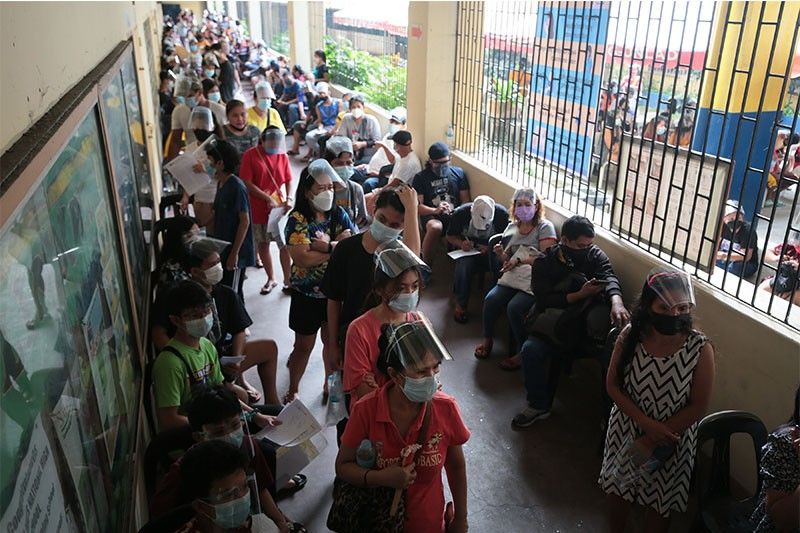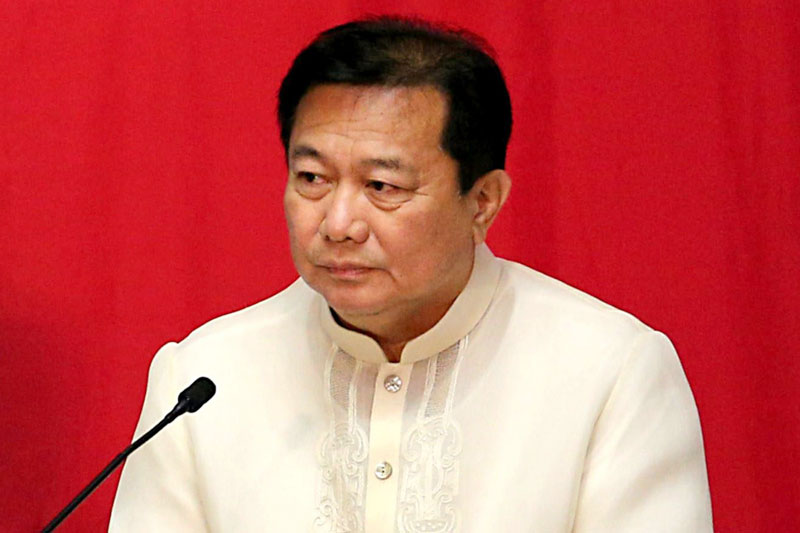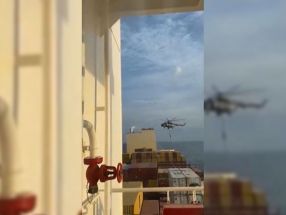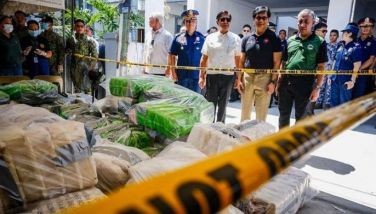Philippines has attained 'substantial population immunity' vs COVID-19 — expert

MANILA, Philippines — The Philippines has achieved a substantial population immunity against COVID-19 as infections and hospitalization numbers drop despite the higher mobility and the easing of movement restrictions, an expert said.
Fr. Nicanor Austriaco, an OCTA Research fellow and a University of Santo Tomas biological sciences professor, said the Philippines is experiencing the lowest COVID-19 case numbers in 20 months, with an average of about 500 cases per day.
The country's hospitalization numbers are also at its lowest in 20 months, with the Makati Medical Center announcing for the first time that it has no COVID-19 patients, he added.
"But this is also interesting because we are experiencing the highest mobility in 20 months... Many of our people are moving around now, the most in 20 months since the beginning of the pandemic and the lockdown in March of 2020," Austriaco said during a meeting of the government's pandemic task force last Monday.
"And so what these three mean together is that it suggests that we have attained substantial population immunity from natural infections and vaccinations in the urban areas of the Philippines because the pandemic has raged and spread primarily in our cities and in our first class municipalities," he added.
"And so the fact that the virus is struggling to find new Filipinos to infect, suggests that we have attained substantial population immunity."
Austriaco said the Philippines' condition is better than those of its neighbors Thailand and Malaysia, which are still recording about 5,000 new infections per day and Vietnam, which is still reporting about 15,000 new cases daily.
"Now the reason why these four different countries have experienced different pandemic curves is probably because as you can see the Philippines experienced - unlike these three other countries - substantial waves of previous variants. So... especially the Alpha, Beta variant, which struck our beloved country in March and April of this year," Austriaco said.
"And so combining the vaccinations and the natural immunity, what you are seeing here is that many of our cities where the pandemic tends to focus are now - are now stable enough to prevent transmission," he added.
Austriaco said Metro Manila, which has a significantly high vaccination rate, is "probably going to be robustly protected against the future surge."
Malacañang said the public should continue to comply with health and safety protocols despite the improving pandemic situation.
"Indeed, we can see the light at the end of the tunnel but the only way we can get to the end is if we continue to carefully watch our steps; let us continue our mask-wearing, hand washing, social distancing and vaccination. Let us do this not just for ourselves but especially for our loved ones," acting presidential spokesman Karlo Nograles said at a press briefing yesterday.
Duterte: Better days ahead
President Rodrigo Duterte expressed optimism that Filipinos would see "better days" ahead because of the decreasing number of infections.
"We continue to see downward trend of the positivity rate, now only less than two percent. This means that for every 100 persons tested for COVID-19, only a maximum of two people turned out to be positive," the President said during a pre-recorded public address.
"Better days ahead because since December 1, we have been on average of 500 to 600 and the number of active cases continues to go down. I’m talking about the COVID," he added.
Duterte also cited a Goldman Sachs report stating that the Philippines is expected to be a strong economy in Southeast Asia by 2022.
"Well, that remains to be seen. We still have to worry about the coming Omicron and how it would impact on the population of the Philippines. But the confidence, at least, is there and the analyst believed that the gross domestic product, GDP, could hit more than seven percent. I hope...This will be a good Christmas for everybody," he added.
Duterte expressed hope that the Omicron variant won't enter the Philippines even as he assured the public that the government is capable of handling the health risk.
"I hope that everything will be for the good of everybody and I am very happy that it (number of infections) is decreasing... That’s a miracle because other countries are still reeling from the effect, it seems that they have a problem with Omicron," the President said.
"We are not hoping for the best but we pray to God that it will not come to our shores. But if ever it comes, we can cope with it just as we did with COVID-19," he added.
'No need to panic'
Austriaco said preliminary data from South Africa suggest that the Omicron wave is three times higher than the Delta wave, which means that it is more transmissible among vaccinated individuals.
"What you can see is that the preliminary data suggests that ten times more unvaccinated individuals are being hospitalized as compared to vaccinated individuals. This is incredibly hopeful especially since as I highlighted before, because of the NCR (National Capital Region) plus eight strategy, our cities and first class municipalities, which is the target for Omicron when it arrives in the Philippines, are highly vaccinated," the expert said.
Austriaco said despite the number of COVID-19 positives, the Omicron hospitalizations are quite low.
"So there are three important questions that the scientists of the world are waiting for: Is the Omicron variant more transmissible? It is likely that it is more transmissible. Is the Omicron variant more immune evasive? Probably. The initial data seems to look like that," he said.
"Is the Omicron variant more deadly? And this is the good news po, it's probably less deadly than Delta. "
Austiraco said Filipinos can still celebrate Christmas but should prepare for be careful to avoid catching the virus.
"First, there is no need to panic. Let us celebrate Christmas. This is the best time in 20 months for the entire country," Austriaco said.
"And so this is not the time to panic. It is the time to be careful. We have to prepare. But we also have to celebrate especially since this is Christmas. We must prepare the hospital infrastructure and increase healthcare workers staffing capacity. Because in the Alpha and Delta surges it was clear that we had nursing shortages, especially in the NCR," he added.
Austriaco cited the need to continue the vaccination drive to build and maintain population
"We must increase the population immunity around our international gateways. Omicron will enter through an airport most likely. And so what we have to do is we have to build a wall of vaccinated Filipinos around these airports. Because once Omicron arrives, it will try to spread into the Filipino population," he said.
"And if the Filipinos around the airports...are heavily vaccinated, then it doesn’t matter if there is an OFW (overseas Filipino worker) who returns home. Because even if this person is able to enter the community, the virus will struggle."
- Latest
- Trending





























